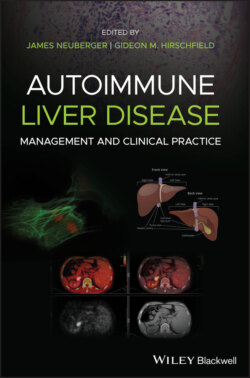Читать книгу Autoimmune Liver Disease - Группа авторов - Страница 41
Abstract
ОглавлениеKnowledge of the concepts of autoimmunity can aid gastroenterologists and hepatologists in management and counseling of patients with autoimmune liver diseases and in understanding the rationales and sites of action of therapies. This chapter addresses major themes: innate and adaptive immunity in the context of the liver as an immune organ; generation and maintenance of tolerance to autoantigens; and risk factors for autoimmunity. The themes discussed also include: loss of immune tolerance to autoantigens and perpetuation of autoimmune diseases; and prospects for prevention of autoimmunity and therapeutic control of autoimmune diseases. Bacterial, fungal or viral infections can instigate innate and adaptive immune responses that result in autoimmunity. Vitamin D deficiency is epidemiologically associated with risk of autoimmunity. The increasing incidence of autoimmunity and inflammatory diseases observed worldwide is correlated with changes in environmental factors, including a more modern lifestyle, improved hygiene, a Western diet, use of antibiotics, and elimination of childhood parasitic infections.
Keywords adaptive immunity; autoantigens; autoimmune liver diseases; autoimmunity prevention; immune homeostasis maintenance; immune tolerance; innate immune organ; therapeutic control
